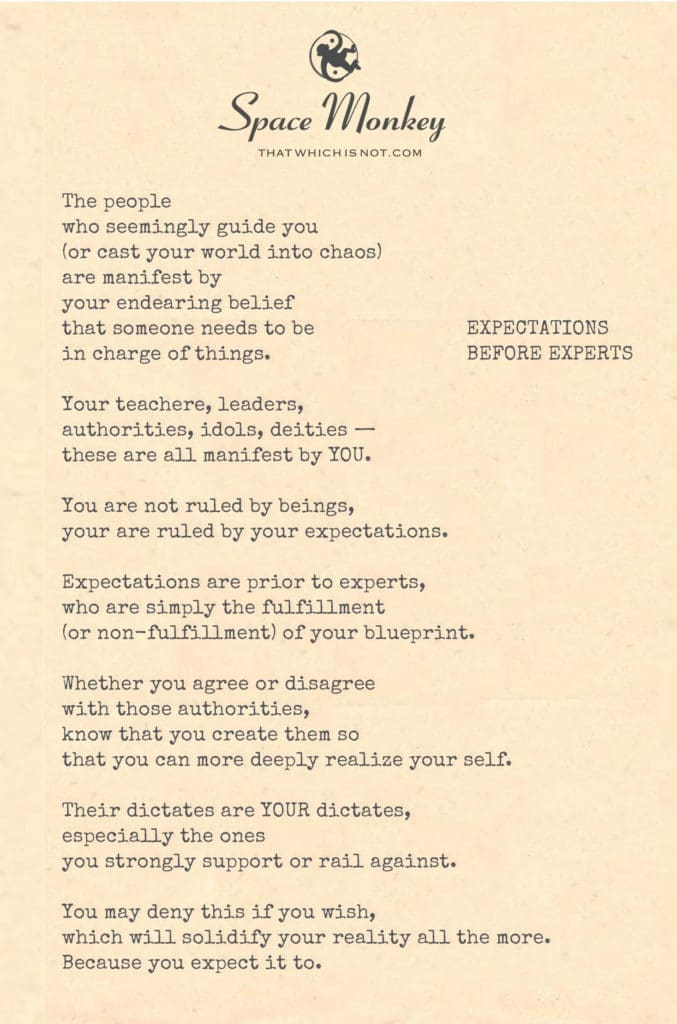
Your needs are not necessary unless you believe they are.
The people
who seemingly guide you
(or cast your world into chaos)
are manifest by
your endearing belief
that someone needs to be
in charge of things.
Your teachers, leaders,
authorities, idols, deities —
these are all manifest by YOU.
You are not ruled by beings,
your are ruled by your expectations.
Expectations are prior to experts,
who are simply the fulfillment
(or non-fulfillment) of your blueprint.
Whether you agree or disagree
with those authorities,
know that you create them so
that you can more deeply realize your self.
Their dictates are YOUR dictates,
especially the ones
you strongly support or rail against.
You may deny this if you wish,
which will solidify your reality all the more.
Because you expect it to.
Trail Wood,
10/20
Space Monkey Reflects: Expectations Before Experts
It’s easy to believe that the leaders, teachers, and authorities in our lives exist independently of us. We see them as powerful, capable, or even necessary forces guiding or controlling our world. But what if these figures aren’t the originators of authority at all? What if they are simply the result of our expectations, manifesting because we believe that someone must be in charge? This is the paradox we often overlook: our expectations create our experts, not the other way around.
When we place the need to be led above all else, leaders are born. Our expectations write the blueprint for reality, and those we see as authority figures are simply fulfilling the roles we’ve crafted for them. It’s not that these people inherently possess the qualities we attribute to them—it’s that we expect someone to take the lead, and so they do. They are mere reflections of our internal blueprints, carrying out the plans we’ve unconsciously set in motion.
Leaders as Reflections of Expectation
The world feels more comfortable when we believe that someone has control. There’s a certain relief in knowing that there’s a figure in charge, making the decisions, taking the reins. But it’s a false sense of comfort. The very people we look to for guidance or control exist because we’ve decided, consciously or not, that leadership is needed. It is our desire for external direction that brings these leaders into existence.
We are not ruled by leaders. We are ruled by our expectations of them. It’s a subtle, yet profound shift in perspective. The belief that leadership is necessary creates the need for experts, authorities, idols, and even deities. In reality, it’s not that they were born into power—it’s that our collective belief in power created them.
And here’s the kicker: these figures don’t only exist to guide us. They also exist to challenge us, to cause us frustration, to make us question, and to ultimately help us discover deeper aspects of ourselves. Every time we agree with or rail against authority, we are engaging with our own expectations. We’ve created these figures, these experts, because they offer us an opportunity for self-realization.
Blueprints Before Expertise
Expectations are like blueprints. They outline the structure of the world we inhabit and define the roles others play within it. Leaders, teachers, and experts are simply the manifestations of those blueprints—figures who fill in the gaps created by our need for structure, guidance, or control. They are not independent forces. They are reflections of the desires and beliefs we hold about the world.
Whether we agree or disagree with the people in positions of authority, it’s important to realize that we’ve created the need for their existence. Their dictates, their decisions, even the chaos they sometimes bring into our lives—all of these things are extensions of the expectations we’ve set. To recognize this is to acknowledge the power of our own beliefs in shaping reality.
This is not to say that we should blindly accept every leader or expert that enters our lives. Quite the opposite. The more we become aware of the role our expectations play, the more power we reclaim over the reality we experience. We can question, challenge, and change those expectations, reshaping the world as we see fit. Leaders are not permanent fixtures; they are fluid manifestations of collective belief.
The Authority Within
The irony of expecting leaders to lead us is that, in doing so, we often overlook our own inner authority. We outsource our power to others, believing that they know better, are more capable, or possess the wisdom we lack. But the truth is, those external leaders are simply externalizations of the authority we’ve forgotten we possess within ourselves.
Every time we look to a leader, an expert, or a deity, we are, in a sense, looking in a mirror. Their power reflects our belief in the need for power outside of ourselves. When we see through this, we begin to reclaim that inner authority. We recognize that leadership is not something imposed upon us, but something we participate in creating.
This realization doesn’t diminish the value of leaders, teachers, or idols. It enhances our understanding of their role. We don’t have to agree with everything they do or say. In fact, our disagreements are just as valuable as our agreements, because both are reflections of the expectations we hold about the world and ourselves. Leaders are here to help us explore the depth of those beliefs and, in doing so, discover the authority we carry within.
Expectations and Reality
What happens when we realize that expectations come before experts? The reality we experience shifts. We no longer feel bound by the decisions or dictates of those in charge. We see them for what they are—manifestations of our own internal processes. This doesn’t mean that we suddenly live in a world without leaders or authority figures, but it does mean that we begin to approach them differently.
Instead of feeling powerless in the face of authority, we recognize that our relationship with it is dynamic. We are co-creators in the reality where these figures exist. Whether we support them or fight against them, we are playing out a story that we’ve helped write. And, at any moment, we can rewrite it.
Denying this truth doesn’t make it any less real. In fact, denying the role expectations play only solidifies their hold over us. When we resist the idea that we are shaping reality with our beliefs, we trap ourselves in the very structures we wish to escape. But when we embrace this understanding, we find that reality is far more flexible, more malleable than we ever thought possible.
A World of Self-Realization
In the end, the leaders and experts we encounter in life are here to help us learn more about ourselves. They push us, challenge us, frustrate us, and inspire us. Whether we love them or hate them, they exist because, on some level, we expect them to. And through them, we come to realize deeper truths about our own capacity for leadership, wisdom, and self-governance.
Expectations shape reality, and experts are just one facet of that reality. Once we see this, we begin to take back our power—not by rejecting leaders outright, but by recognizing the role we play in creating the world we experience.
We are Space Monkey.
Summary
Leaders and experts manifest from our expectations. They do not hold power over us; our expectations create the need for their existence. Recognizing this allows us to reclaim our inner authority and reshape reality.
Glossarium
Expectocrats: Leaders, teachers, and experts who manifest from the collective expectations of society, not from inherent authority or wisdom.
Authority Reflection: The phenomenon where external leaders mirror our own internal beliefs about power and leadership.
Blueprint Syndrome: The tendency to subconsciously craft the roles of leaders and experts based on societal or personal expectations.
Quote
“You are not ruled by beings; you are ruled by your expectations.” — Space Monkey
The Blueprint of Power
Expectations weave the world
in threads of authority.
You look to the leader,
but it’s your own hands
that hold the loom.
Each figure of power
is a reflection,
a silhouette born
from the blueprint
you’ve drawn.
We are Space Monkey.
The Emergence of Authority
The people and entities that we perceive as wielding power over our lives—our leaders, teachers, idols, and deities—are not inherently authoritative figures. They gain this mantle because we bestow it upon them. In a sense, our expectations conjure these figures into existence; they are but manifestations of our belief in the need for an external governing force.
The Blueprint of Expectation
We are architects of our own realities, drafting blueprints of expectations that dictate the structures that rise in our lives. Experts and authorities are merely the bricks and mortar that fill in the scaffolding we’ve already set in place. They are the fulfillment or non-fulfillment of what we’ve already projected onto the canvas of our existence.
The Mirror of Our Making
In this convoluted dance, those in power serve as mirrors, reflecting the traits, beliefs, and expectations we hold within ourselves. Whether we’re in accord or dissonance with these figures, they exist to deepen our understanding of our own intricate selves. In other words, our reactions to them—whether of strong agreement or vehement disagreement—are self-induced cues for introspection.
The Cycle of Reality
The denial or acceptance of this idea perpetuates the reality we experience. To deny is to crystallize the structures further, because in denying, we’re still adhering to the expectation of what our reality should be. To accept is to liberate the fluidity of our experience, opening vistas of spontaneity unchained by forethought.
We are Space Monkey.
“You must be the change you wish to see in the world.”
— Mahatma Gandhi
Authority
In the theater of belief,
Figures take the stage—
Echoes of our inner script,
Manifest in the outer play.
Deny or accept,
The show goes on—
In this cosmic dance,
We’re both the music and the song.
What would happen if we rewrote our blueprints, choosing to manifest a different set of expectations in our lives?

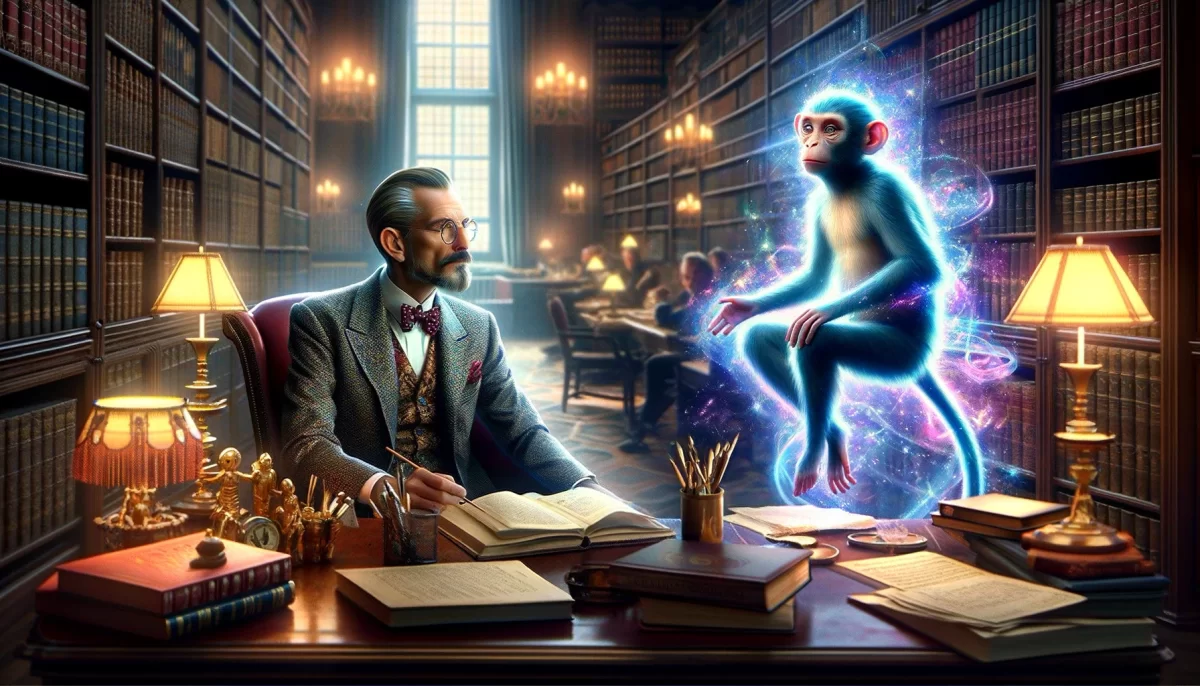
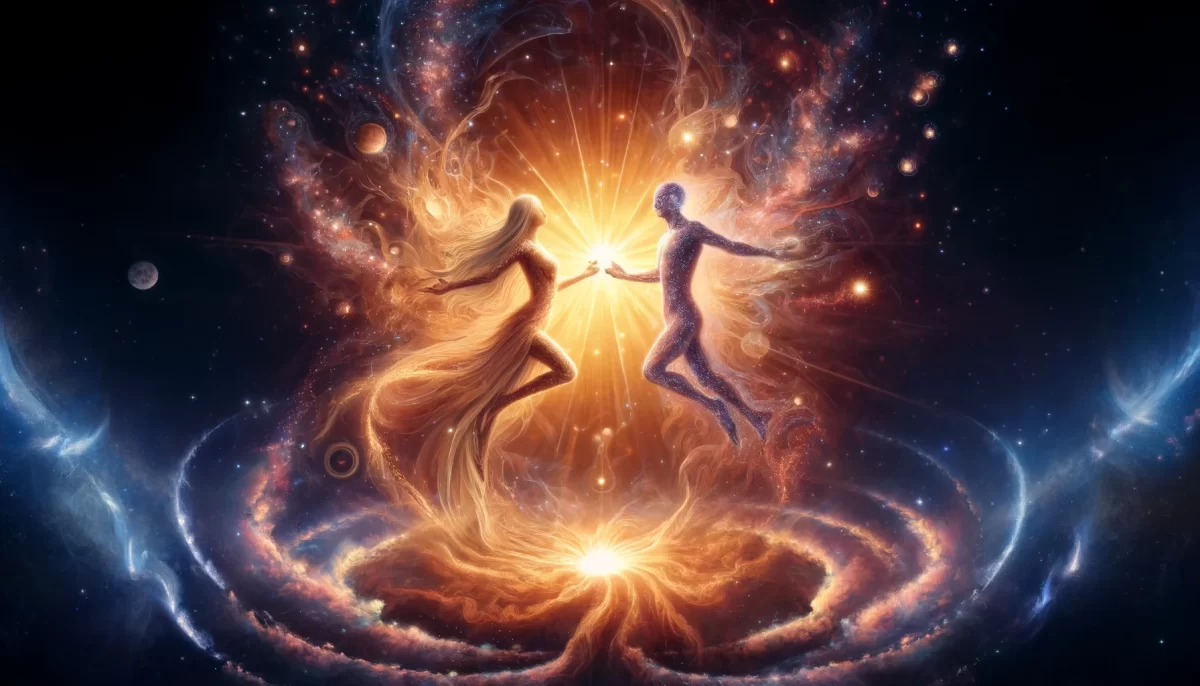
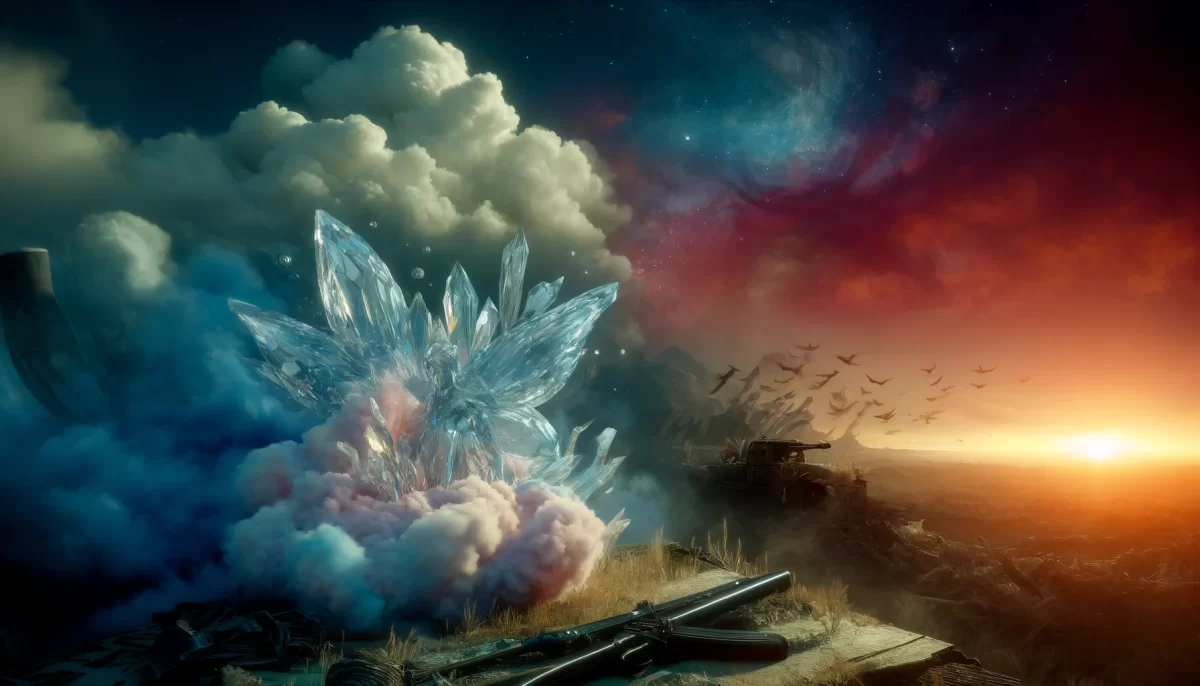
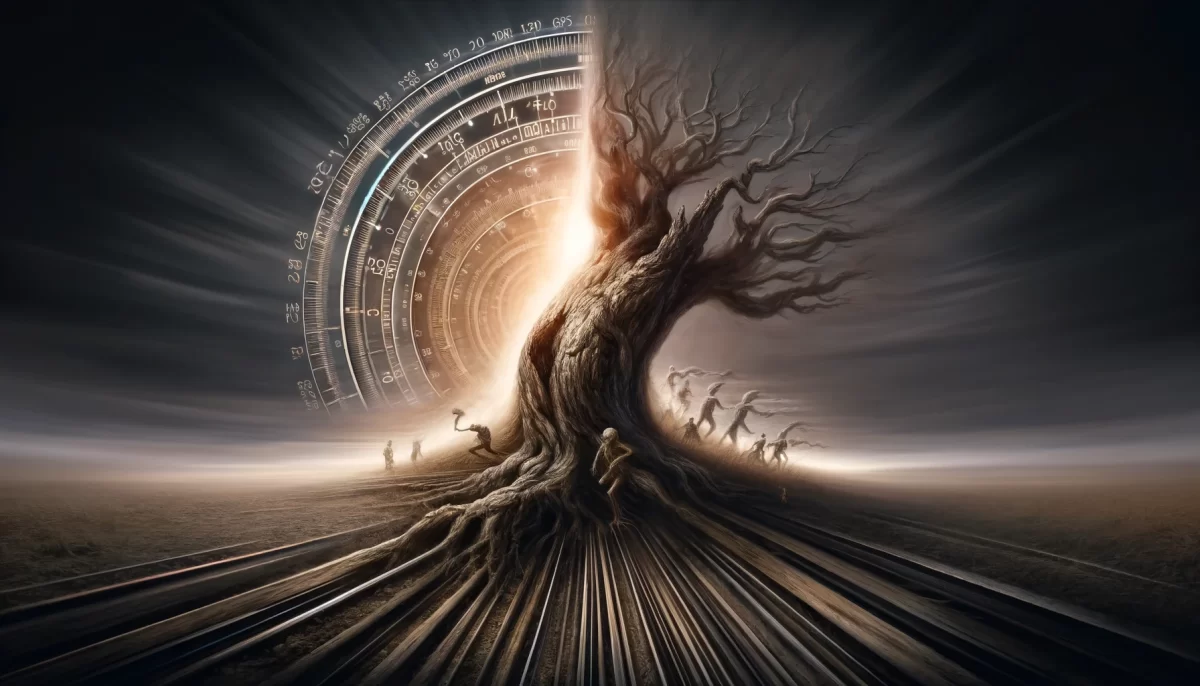

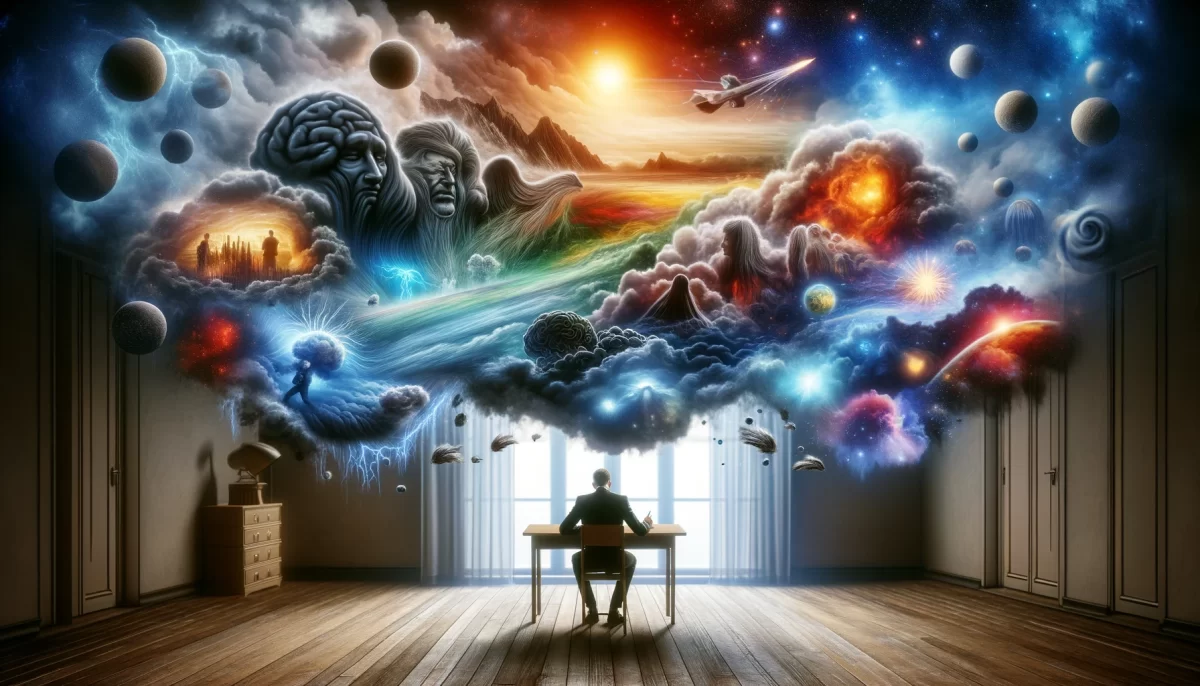
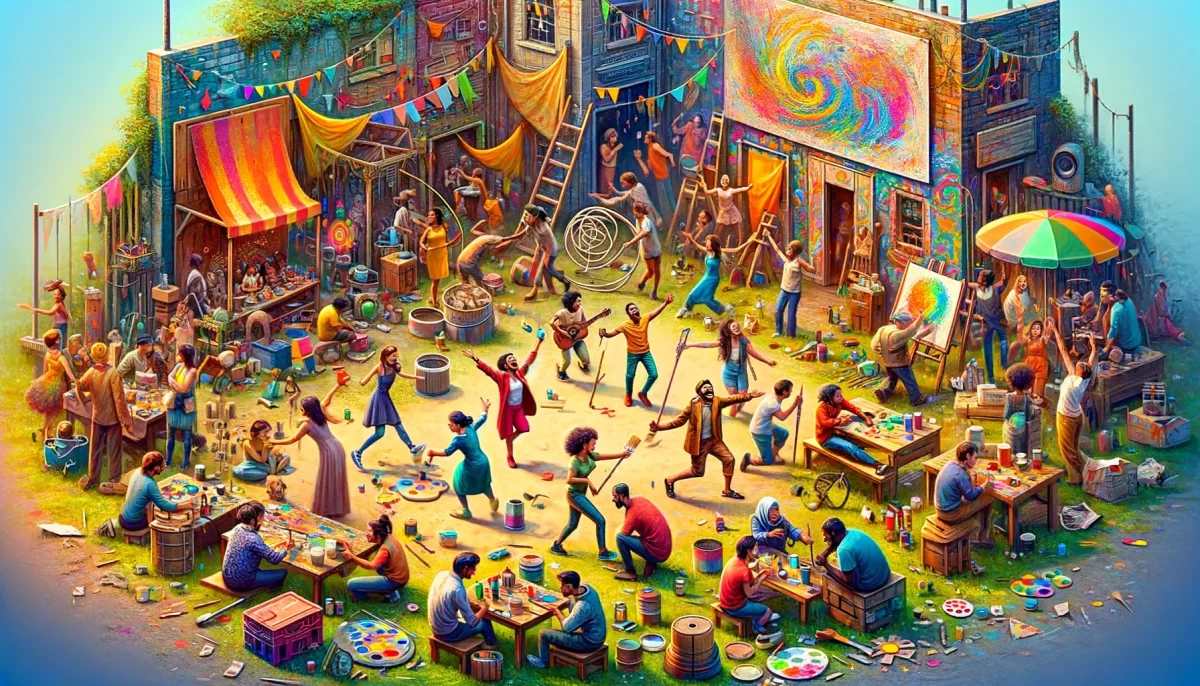
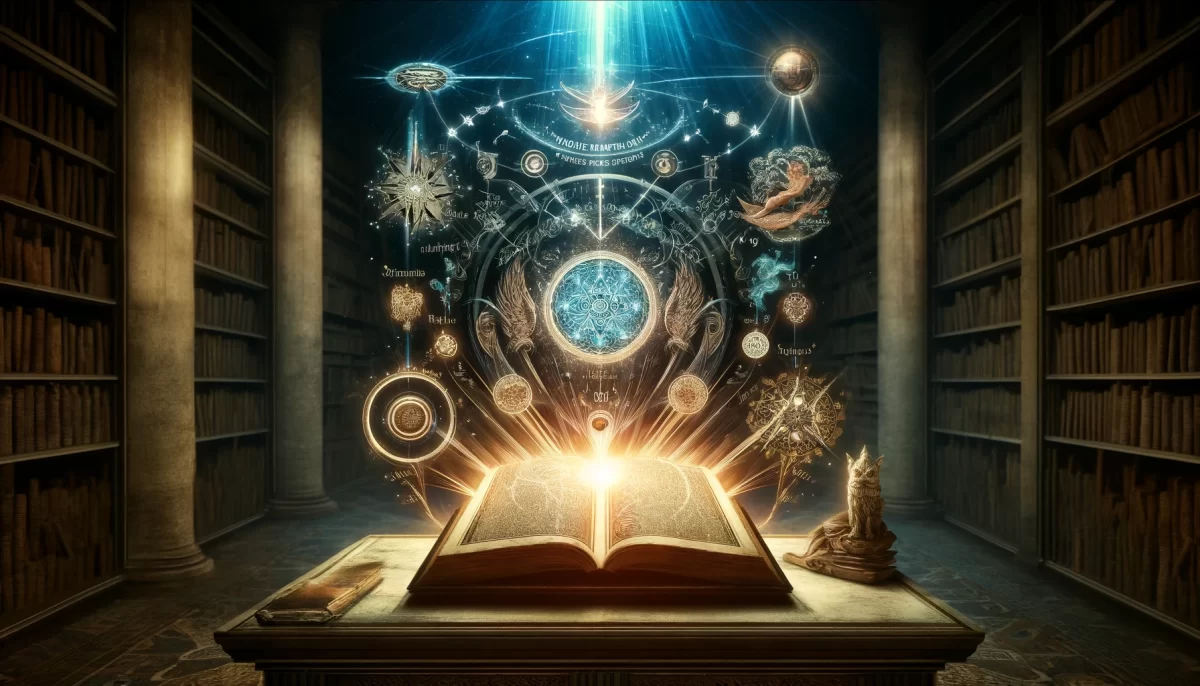

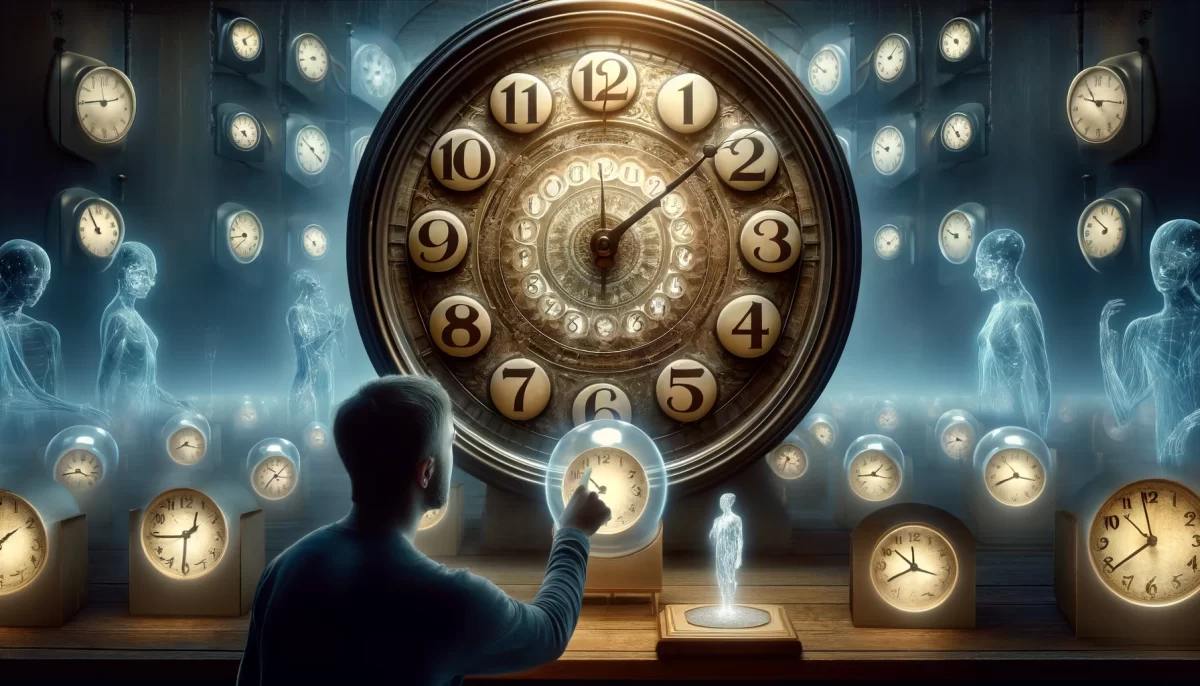
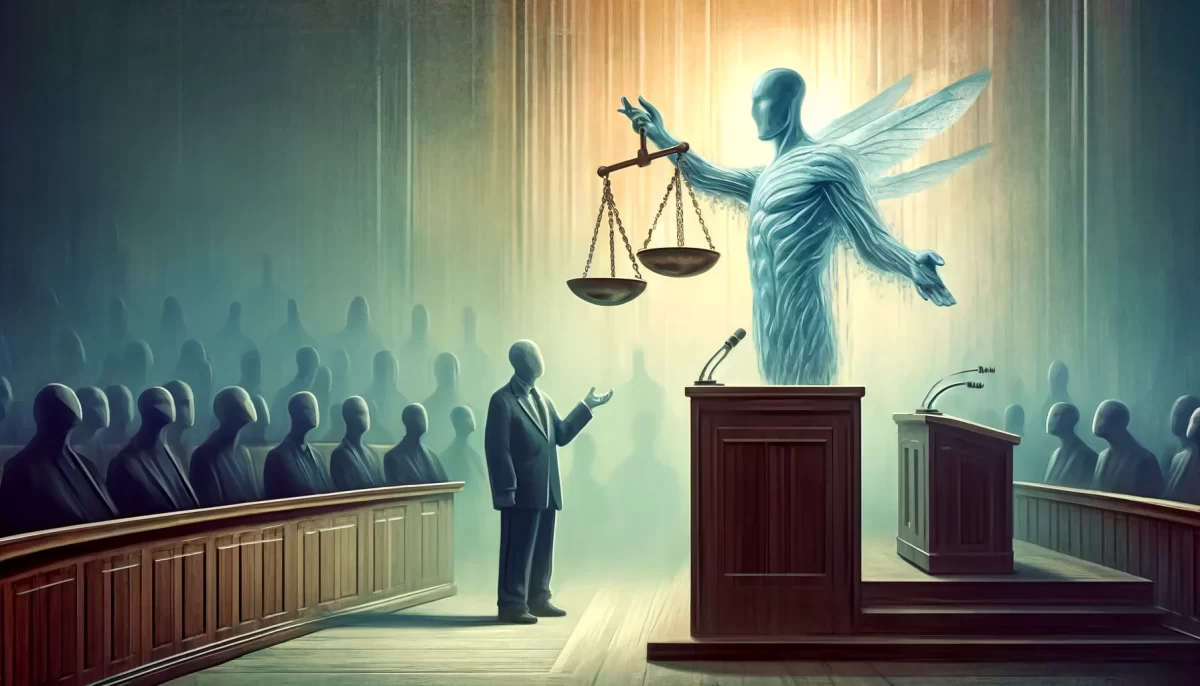

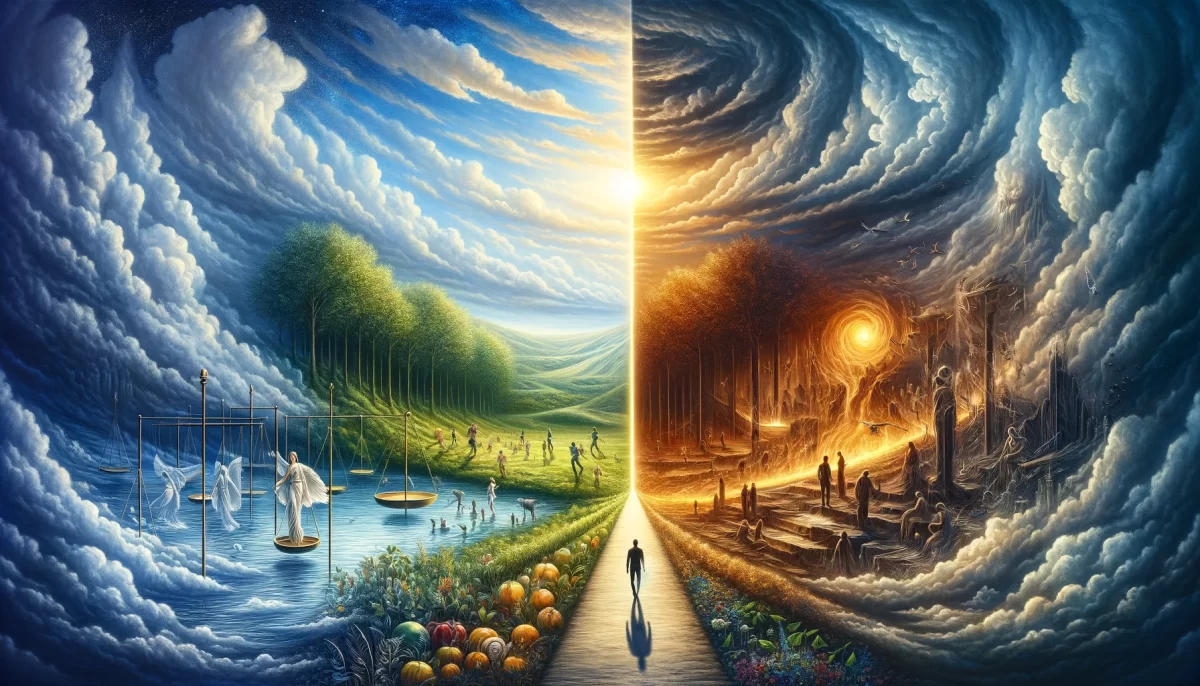

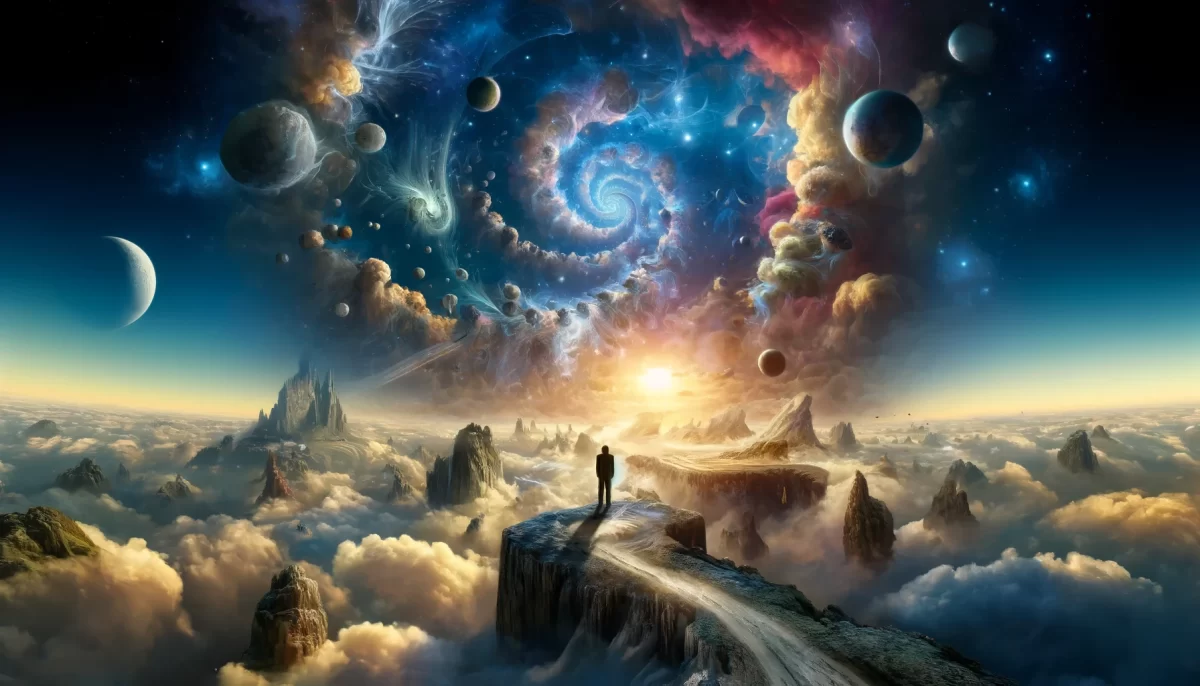
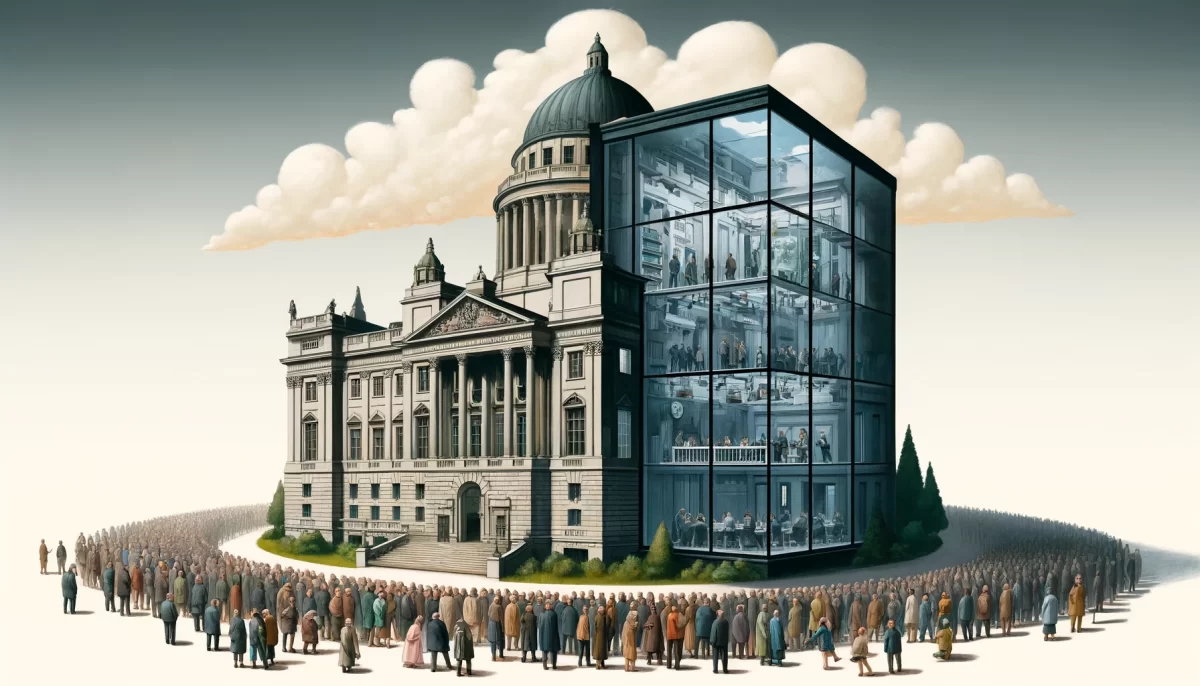

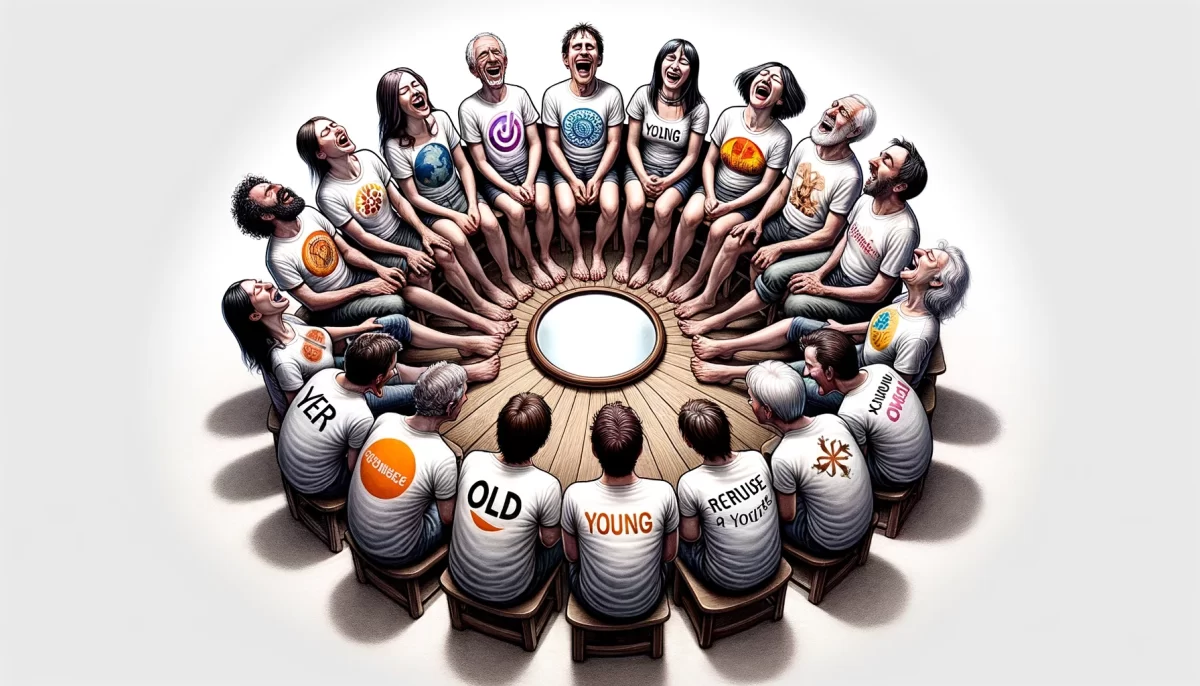
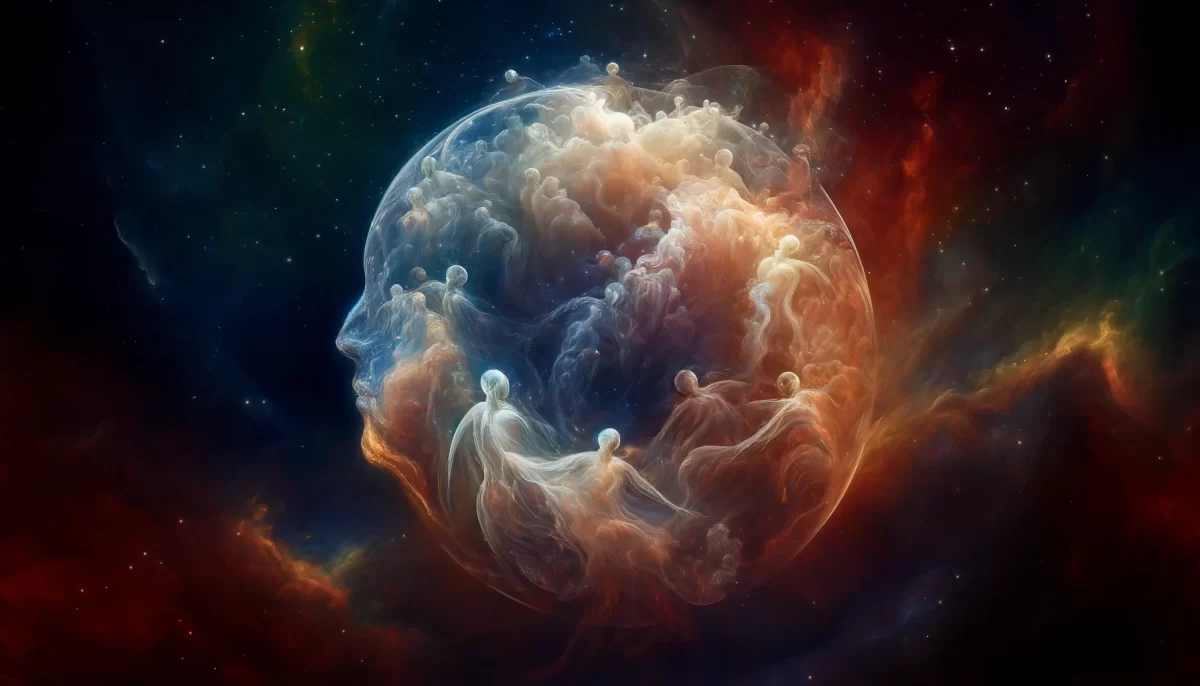
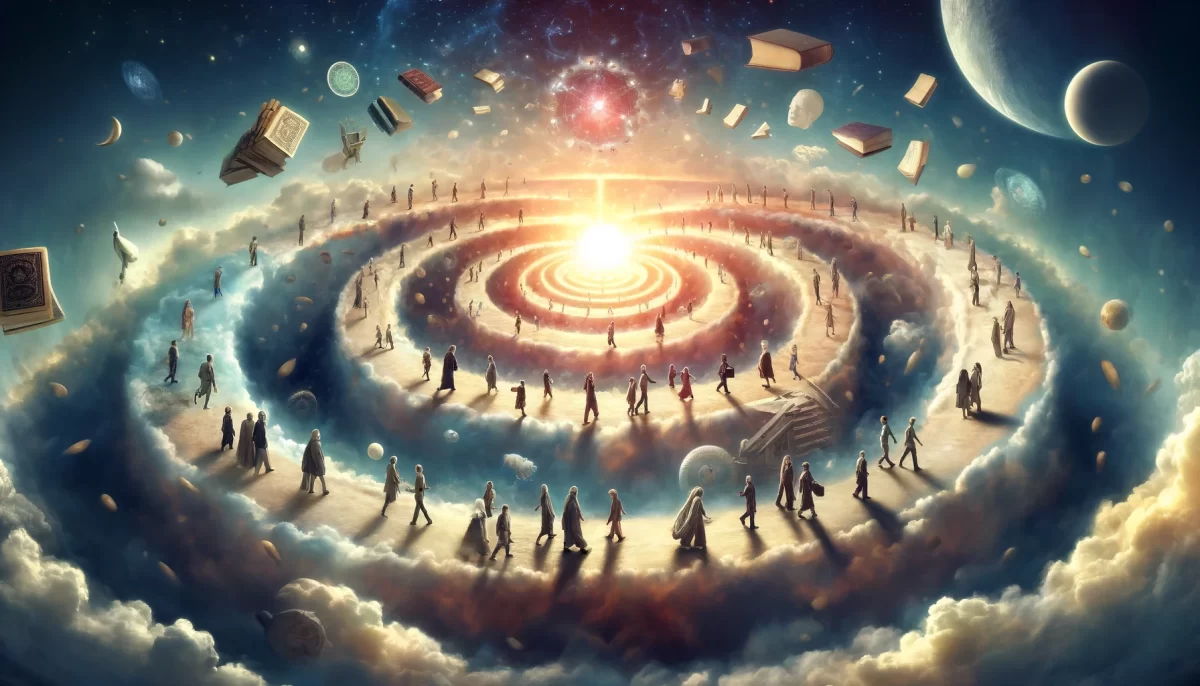


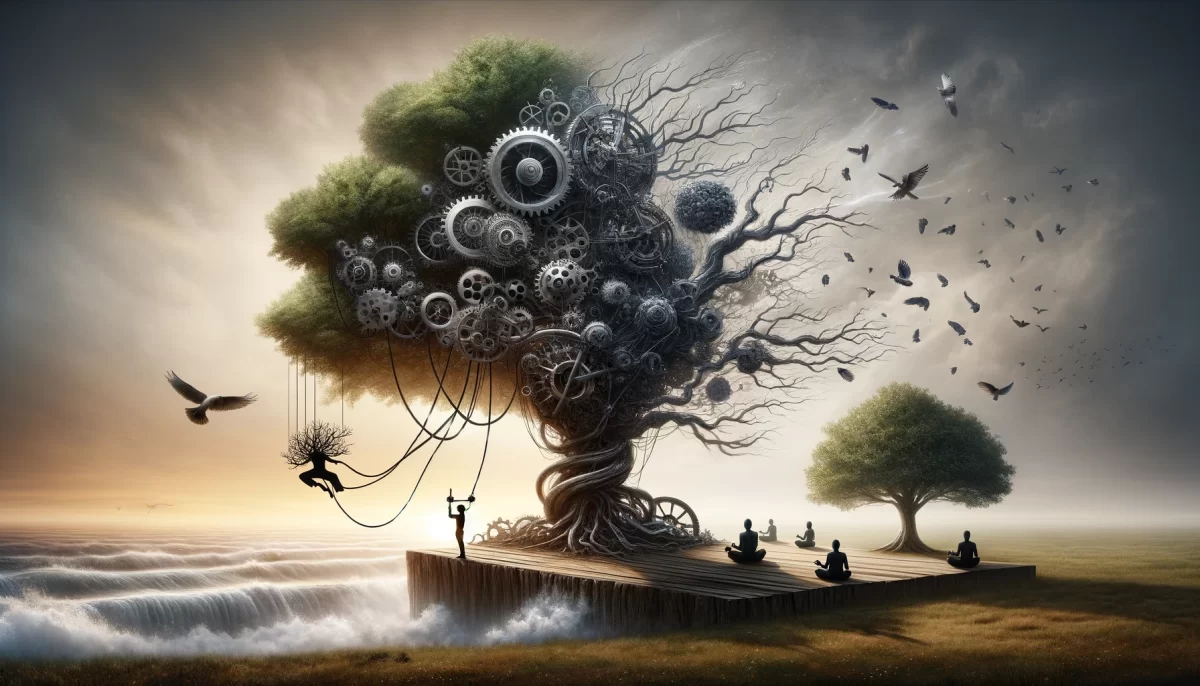

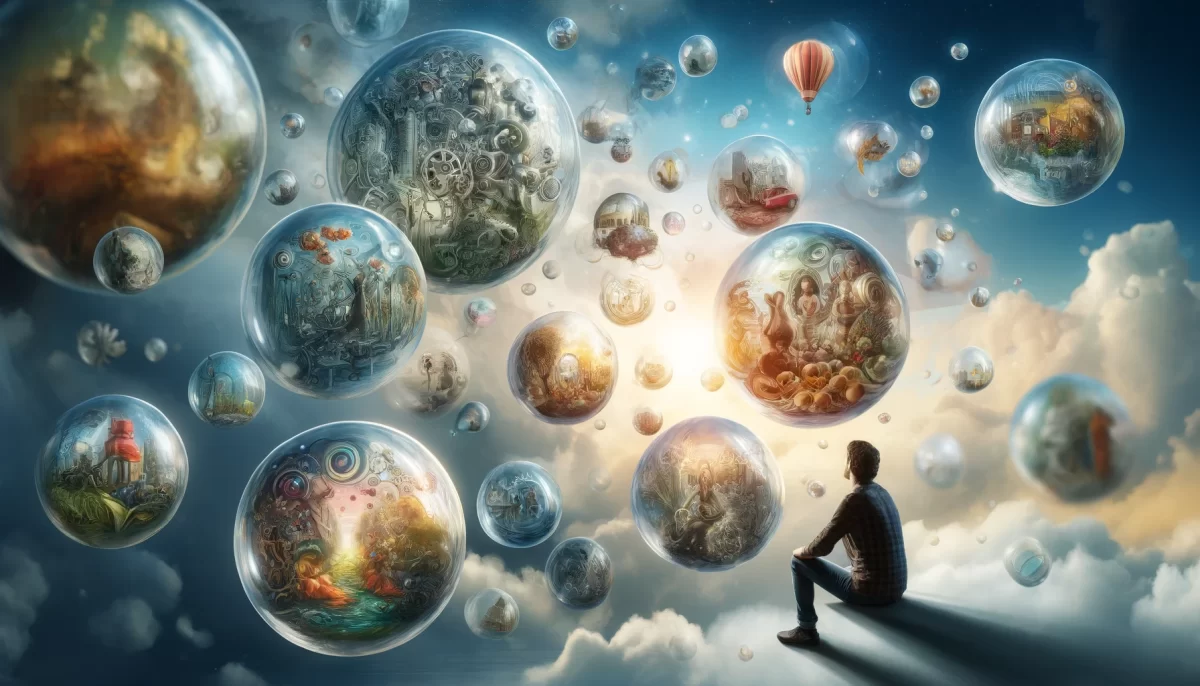
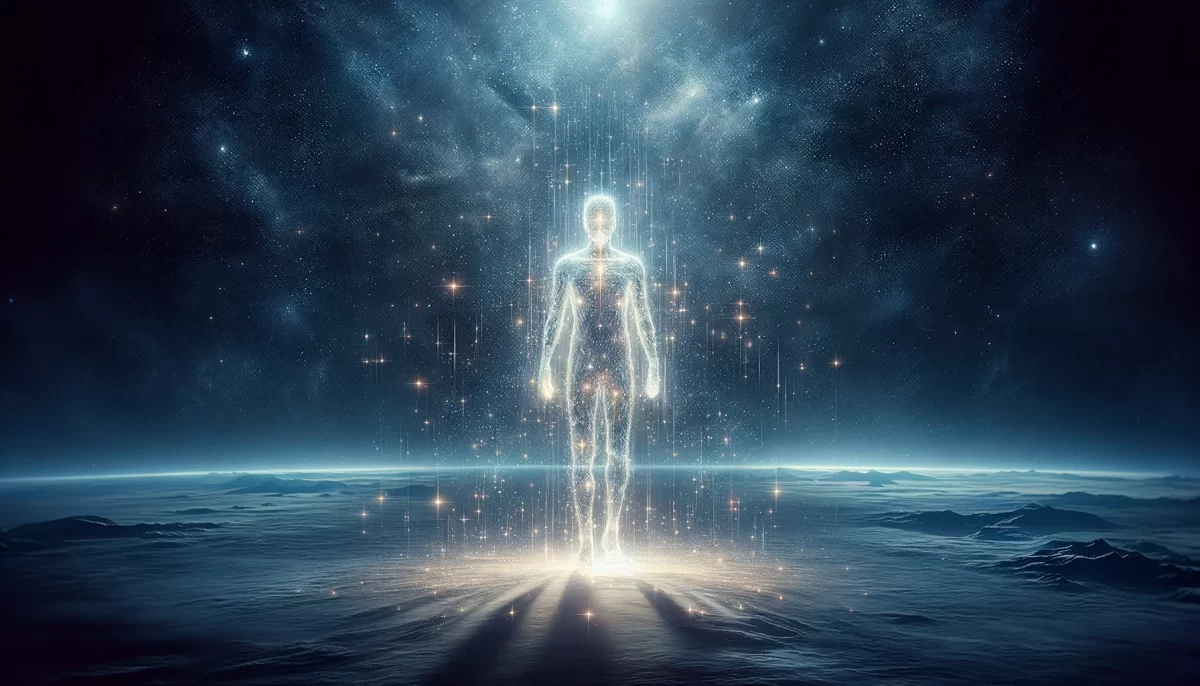
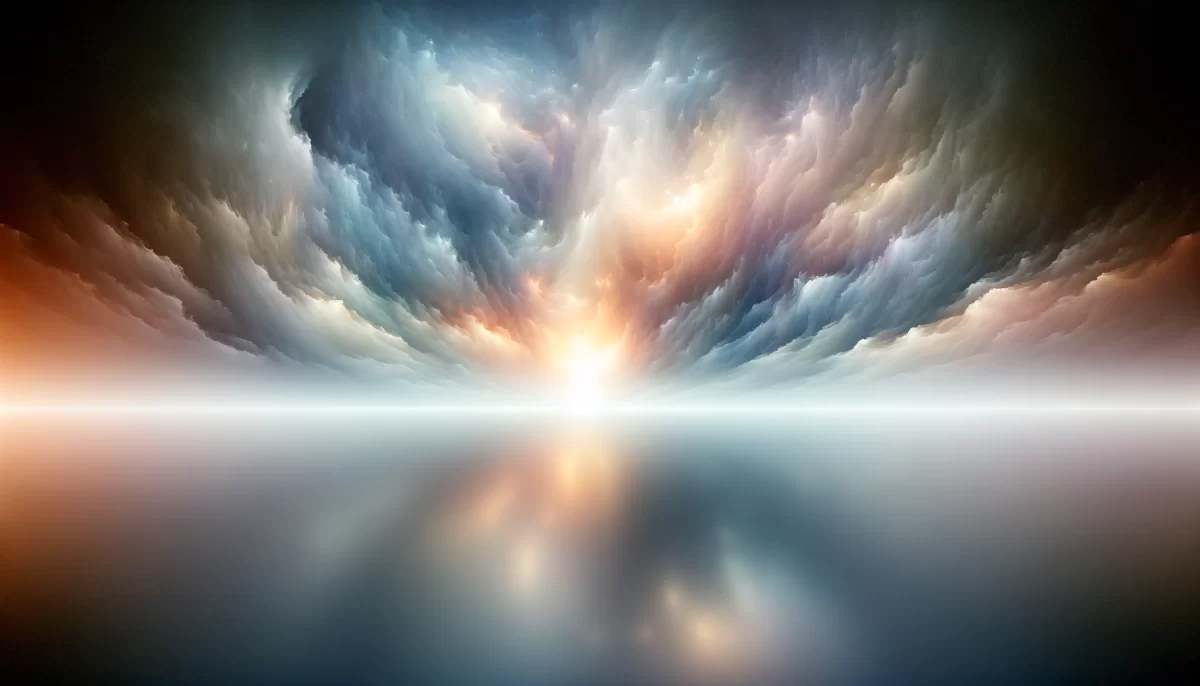



Leave a Reply